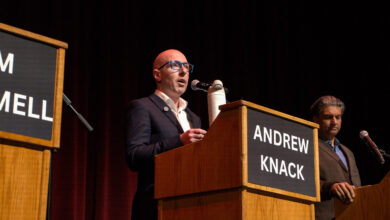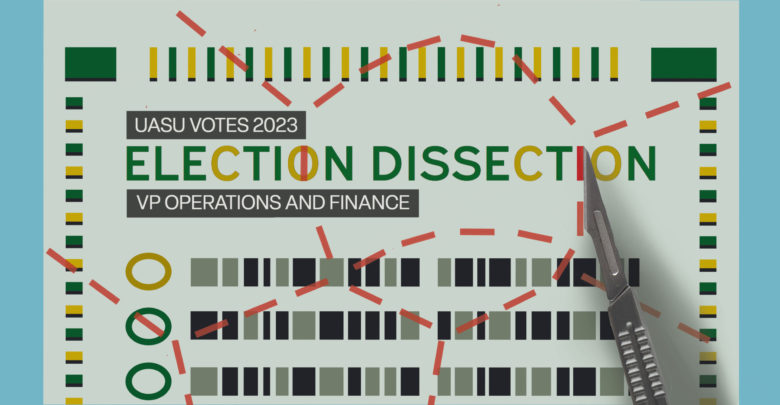 Arthur Macatangay
Arthur MacatangayEvery year The Gateway hosts a panel to determine who should and who will win in each race for the Students’ Union elections to assist those undecided on who to vote for. Our election dissection panel is here with their insights on student politics and their takes on this year’s candidates.
Opinions expressed by the panellists do not reflect those of The Gateway.
The Panel
This year’s panel for election dissection included:
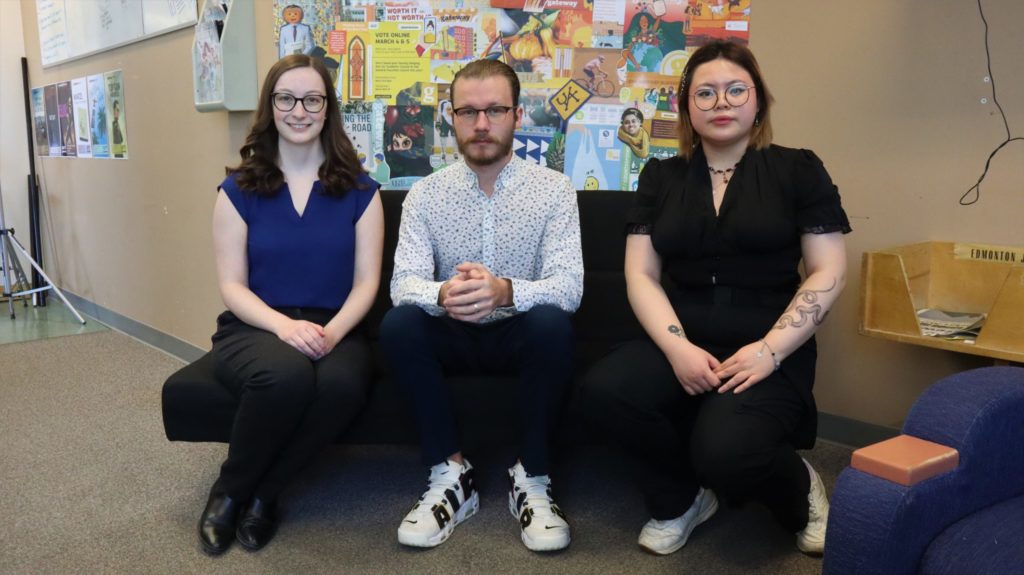
- Jin He: first-year pharmacy student at the University of Alberta, former production editor at The Gateway.
- Jared Larsen: U of A alumni (BCom ’20), former Students’ Union vice-president (student life), former Residence Association President
- Emily Briand: third-year political science student at the U of A, current president of the University of Alberta Conservative Club.
The Candidates
Fateh Arslan, a fourth-year commerce student, and current business councillor on Students’ Council.
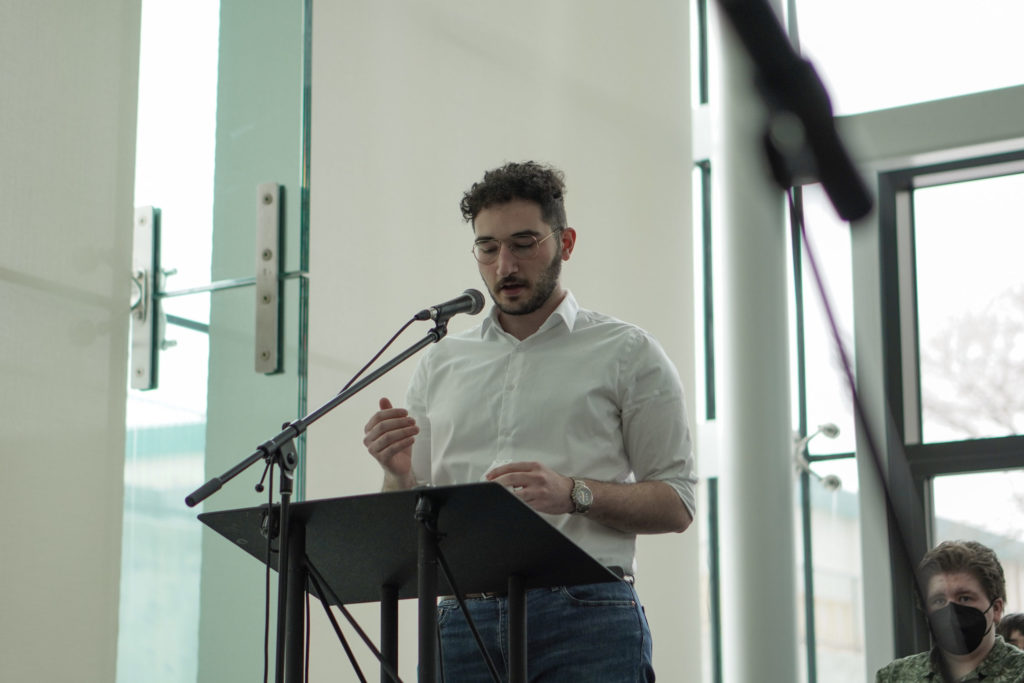
Levi Flaman, a fourth-year commerce student, and current business councillor on Students’ Council.
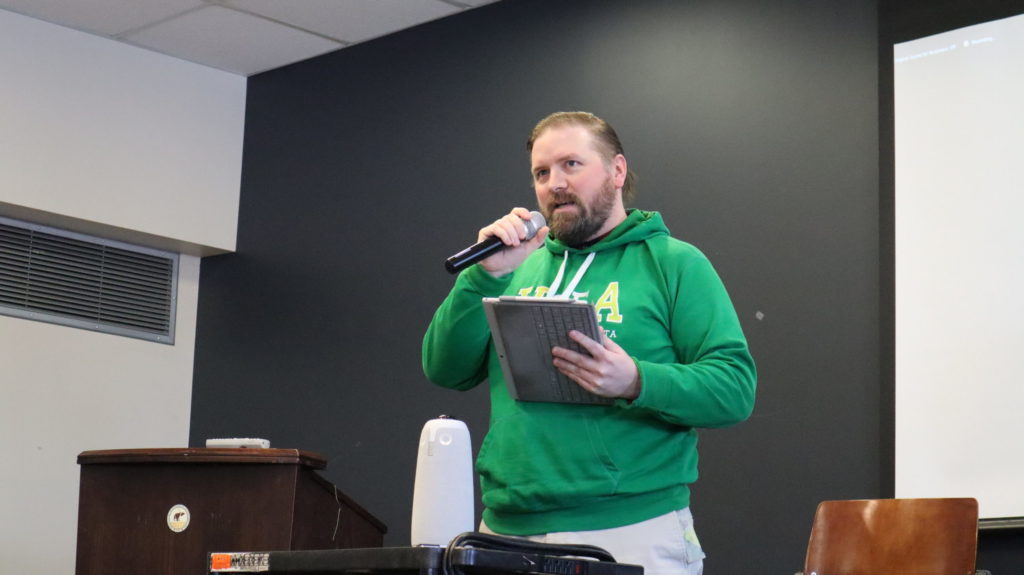
He started the discussion by expressing that she was “unimpressed” with Flaman’s performance during his campaign, and she pointed out that his opponent Arslan is more “publicly known” through his posters around campus.
“Unless we go to a forum or read a forum recap — which to be honest, students don’t do — it’s very hard for us to really get what he’s actually running for,” He said.
During the International Students’ Association (ISA) forum, Flaman was asked about his platform being unavailable on his social media platforms. In response, Flaman posted a picture on his campaign Instagram account, which was accompanied by an unclickable Google Drive link to his platform pasted in the caption.
He thought that Arslan’s promises were “lofty” while Flaman appeals to students “that doesn’t fully know what the UASU does” through his idea of internally reassessing UASU’s finances.
Larsen described Flaman’s history on campus, in regards to his experience as Board of Governors representative (BoG rep) from 2018 to 2019 and UASU councillor.
“[Flaman] doesn’t have a presence on campus … When he was in office before at the board level, he made decisions that the student body didn’t agree with. And while he had a fiduciary responsibility to the university, he was still a student and students remember that.”
He echoed Larsen, expressing that Flaman’s past as BoG rep has not convinced her in his ability to “reduce the amount of spending of the UASU without reducing student services.”
In comparison, Larsen said that he knew Arslan years ago as a volunteer his VPSL campaign — and thought that his connections on campus were a strength for Arslan’s campaign so far. “I know he’s got a good campus presence and I know he’s got strong bases in residence specifically.”
Briand pointed out that Flaman was the only VPOF candidate that proposed to reduce the reliance on student revenue through UASU membership costs. She also appreciated that both VPOF candidates talked about bringing a centralized hub for student discounts.
“At the end of the day, that’s really all I care about … As a student who’s not entirely involved and living and breathing student politics, all that matters is affordability, and the Students’ Union membership fees are a lot — and I think a lot more than it should be.”
The panellists were asked about the candidates’ platforms on fiscal transparency, in light of the dismay students had after the cost analysis for Break the Record (BTR) was released.
He highlighted the UASU’s response to students’ concerns about BTR as a reason why students are now concerned where their money is going towards. When asked about how much BTR was covered by UASU student fees, current UASU president Abner Monteiro said that the Students’ Union does not track costs at that “granular level.”
“I don’t think that was the best response and I think that really fueled the reason why students were angry about it,” He explained. “And things like the waterfall in SUB or something that students can see is being spent, they don’t really know how these financial decisions are made.”
He talked about how Arslan’s responses in his Q&A, particularly about his experiences with budgeting and his focus on using UASU Perks, “does not inspire confidence” in her. She added that she trusts that Flaman would report on finances “in some fashion back to students,” considering Flaman’s experience on council as chair of the audit committee and his tendency in being “very particular about the rules.”
On the other hand, Larsen had “no concerns” about either of the VPOF candidates’ abilities in handling UASU’s finances because of the support that accountants bring into the VPOF role.
“It is a very internally facing job. They both seem to have good budget principles behind them and there is a lot of support in that role, like the executive offices are 20 feet away from eight accountants.”
In reference to Flaman questioning Arslan’s focus on student life initiatives during the Myer Horowitz forum, Larsen described Flaman’s notion of siloing into one portfolio as a “dangerous ball game.”
“[VPOF] and [VPSL] work well together because there are a lot of areas for collaboration in their initiatives,” Larsen said, mentioning the period equity project as an example.
“You need a VPOF strong presence to get something like that done.”
He and Briand had concerns with Arslan’s platform on environmental sustainability such as expanding on solar panels on SUB.
“I think he really needs to review how much of the budget goes towards those initiatives and how much of the onus is actually put on students to begin those, versus the UASU,” He said.
“While environmentalism is important, I don’t know if it’s the VPOF who’s supposed to put forward these initiatives,” Briand added. “At the end of the day, it’s all about, ‘is this affordable?’”
As a solution to fund his goals, Larsen pointed out that Arslan could potentially use the “underutilized and undercommunicated” Sustainability and Capital Fund and the Campus Recreation Enhancement Fund, in collaboration with residence and faculty associations.
When asked about the candidates’ plans on creating new businesses on other campuses like Campus Saint-Jean (CSJ), Larsen pointed out that making big promises to another campus is risky, as these are frequently under-delivered.
“I think the worst thing you can do in your campaign is to make a bold promise to another campus because it’s gonna get spat in your face in your next campaign.”
Briand and He echoed Larsen’s sentiment by highlighting the effectiveness of North Campus businesses like Dewey’s and the Daily Grind. During the CSJ forum, Arslan highlighted his plans on creating a business similar to Dewey’s on CSJ while Flaman took on a more broader approach of supporting business ventures that l’Association des Universitaires de la Faculté Saint-Jean (AUFSJ) would like to explore.
“I think the things that we have here on campus could be run more efficiently before we try starting to expand out or campus,” Briand said.
“I think for the past few years, Dewey’s has been redlining in their budget so it’s hard for me to say anything about further investments into cafes that would be profitable,” He added.
Although Flaman’s broad expertise on Student’s Council financial affairs has trumped Arslan’s “lofty” sustainability goals and odd business ventures on the surface, panelists thought Flaman’s infamous past as BoG rep and the lack of presence towards this year’s voters has come to haunt his campaign.
Who will win: three votes for Fateh Arslan
Who should win: one vote for Fateh Arslan, two votes for Levi Flaman


